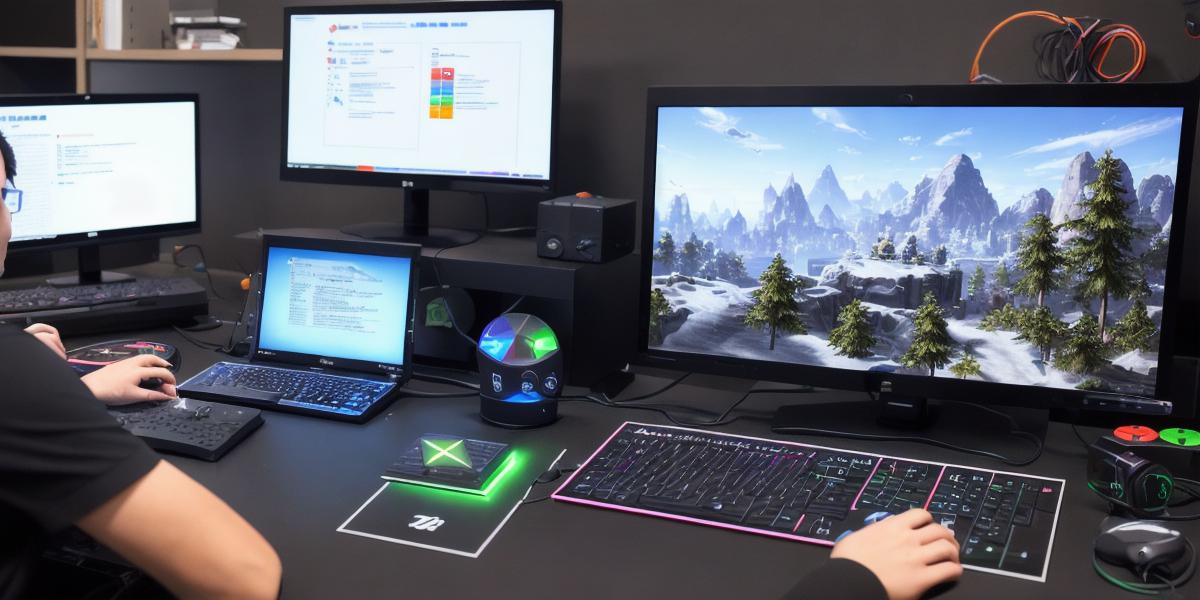If you’re a budding game developer, there are a few things to keep in mind when applying for junior game developer jobs. In this article, we’ll explore the requirements and responsibilities of these roles, as well as some tips for landing your dream job.
Requirements for Junior Game Developer Jobs
To be successful in a junior game developer role, you will need to have:

Technical Skills
Junior game developers must have a strong foundation in programming languages such as C++, Java or Python. They should also be familiar with game engines like Unity, Unreal Engine or CryEngine. In addition, they should have experience with game development tools such as Adobe Photoshop and 3D modeling software like Blender.
Soft Skills
Junior game developers need to possess good problem-solving skills, attention to detail, strong communication skills, and the ability to work well in a team environment. They should also have a passion for games and be able to think creatively.
Education
A degree in computer science, game design or a related field is highly recommended for junior game developers. However, it’s not always necessary if you have relevant experience and can demonstrate your skills through a strong portfolio.
Responsibilities of Junior Game Developers
As a junior game developer, you can expect to be responsible for:
Writing and Debugging Code
You will be responsible for writing code to bring your games to life and debug any issues that arise during development. This may include fixing bugs, optimizing performance, and implementing new features.
Collaborating with Other Team Members
Game development is a team effort, so you will need to work closely with other members of the team, including artists, producers, and designers. You will need to communicate effectively and be willing to take feedback in order to create a cohesive and high-quality product.
Testing and Optimizing Games
You will also be responsible for testing and optimizing games to ensure they run smoothly and provide a good user experience. This may involve playing the game extensively, identifying issues, and working with other team members to fix them.
Keeping Up-to-Date with Industry Trends
The game development industry is constantly evolving, so it’s important to stay up-to-date with the latest trends and technologies in order to be successful. This may involve attending conferences and workshops, reading industry blogs, and taking online courses.
How to Land Your Dream Junior Game Developer Job
To land your dream junior game developer job, here are some tips:
Build a Strong Portfolio
Your portfolio is your chance to showcase your skills and experience to potential employers. Make sure it’s polished and up-to-date, and includes examples of games you’ve developed and any relevant projects. Your portfolio should demonstrate your technical abilities as well as your creativity and problem-solving skills.
Network with Industry Professionals
Networking can be a powerful tool when it comes to finding job opportunities in the game development industry. Attend industry events, join online forums and communities, and connect with professionals in your field on LinkedIn. This will not only help you find potential job opportunities but also give you valuable insights into the industry.
Stay Up-to-Date with Industry Trends
Stay up-to-date with the latest trends and technologies by reading industry blogs, attending conferences and workshops, and taking online courses. This will not only help you stay current with the latest developments in game development but also make you a more valuable candidate to potential employers.
Apply for Multiple Jobs
Don’t be afraid to apply for multiple junior game developer jobs at once. This can increase your chances of landing an interview and ultimately, a job. However, make sure to tailor your application materials to each specific job, highlighting the skills and experience that are most relevant to the role.
